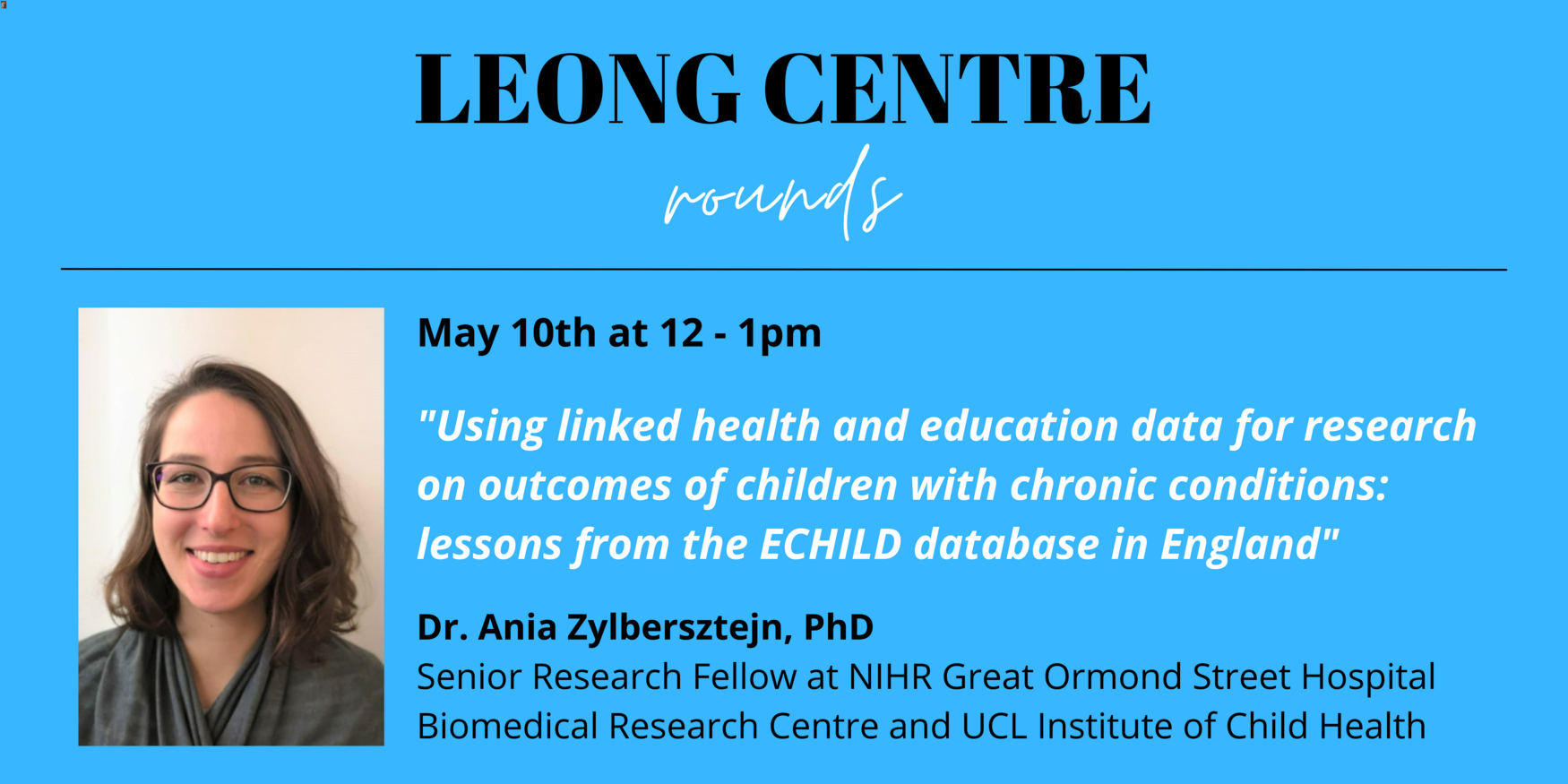Leong Centre Rounds: Using Linked Health and Education Data for Research on Outcomes of Children with Chronic Conditions
DATE: Friday, May 10
TIME: 12:00 – 1:00pm (ET)
METHOD: Hybrid* – due to building security protocol, you must have a SickKids or visitors badge to access the room for this event
REGISTRATION: https://forms.office.com/r/HP07Fpgxse
SPEAKER:
Dr. Ania Zylbersztejn, PhD is a Senior Research Fellow at NIHR Great Ormond Street Hospital Biomedical Research Centre and UCL Institute of Child Health. Her research uses administrative databases to study health and education outcomes of children and young people with complex chronic conditions, infant health and international comparisons. Her current research focuses on using ECHILD (a national database linking health and education records for all children in England) to examine health and education trajectories for children with neurodisability.
TITLE: Using Linked Health and Education Data for Research on Outcomes of Children with Chronic Conditions: Lessons from the ECHILD Database in England
DESCRIPTION:
The Education and Child Health Insights from Linked Data (ECHILD) is a novel data source linking administrative data from all state-funded schools and hospital contacts in England (~15 million children). ECHILD can be used to develop cohorts of children with specific rare or complex conditions, identify comparison or control cohorts, and follow their health and education journeys from birth, throughout primary and secondary schools, and into early adulthood.
In this talk, Dr. Zylbersztejn will present an overview of the ECHILD database and discuss examples of research carried out using ECHILD: the HOPE study, which aims to explore impact of special educational needs provision on health and education outcomes of children with chronic conditions, and multiple descriptive studies exploring outcomes of adolescents as they become young adults. She will also discuss lessons learnt from working with ECHILD and plans for future research projects.
OBJECTIVES:
- To learn about the ECHILD database – what data are collected and the strengths and limitations of using this resource for research
- To learn about the HOPE study, and lessons learnt from using administrative data to answer causal questions about special educational needs provision
- To describe health outcomes of vulnerable adolescents, receiving additional educational or social care support

Contact
Research Program Manager
Edwin S.H. Leong Centre for Healthy Children
